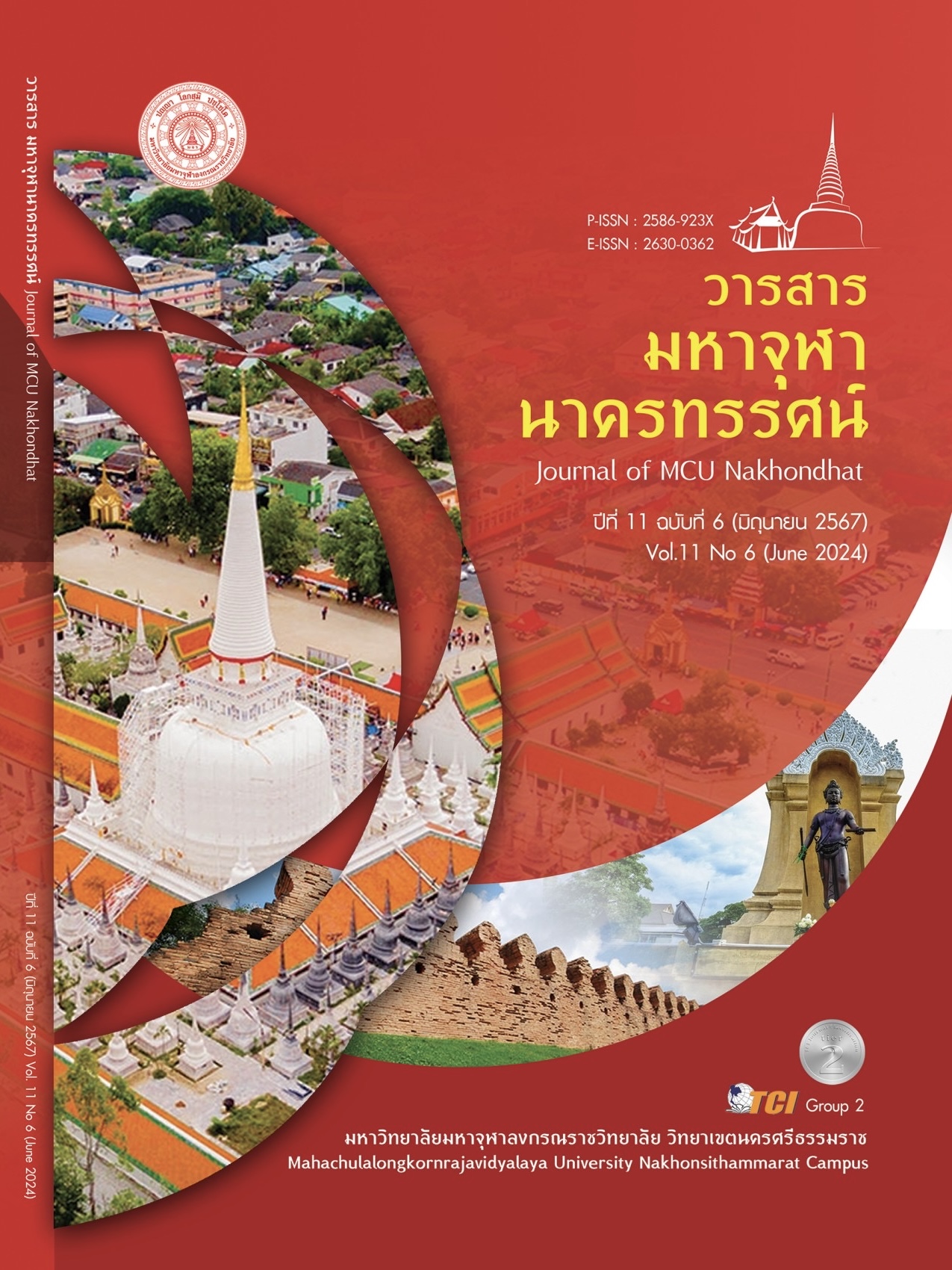GUIDELINES FOR IMPROVING THE EFFICIENCY OF SUDDEN CRISIS EVENT MANAGEMENT IN PUBLIC UNIVERSITIES IN NANJING
Main Article Content
Abstract
The purpose of this research was to study ways to improve the efficiency of sudden crisis management in public universities in Nanjing. The population of this research consisted of 265 middle-level administrators from 6 categories of public universities in Nanjing. The appropriateness and feasibility evaluation group of experts included 6 senior executives or senior academics and administrators. Three government agencies. Research instrument include a 5-level estimation questionnaire consisting of 5 areas consist of 1) Crisis prevention, 2) Crisis preparation, 3) Crisis response, 4) Crisis recovery, 5) Learning and reflecting. The consistency index is between 0.80-1.00 with a reliability at .94. Statistics for data analysis include mean and standard deviation. and content analysis. The results of the research found that 1) In the current situation, the efficiency of sudden crisis management in public universities in Nanjing in all 5 areas is at a high level. At the results from highest to lowest, they are as follows: Recovery from the crisis was the highest average. Next is learning and reflection. and crisis prevention is the lowest average. 2) Guidelines for improving the efficiency of sudden crisis management in public universities in Nanjing in 5 areas, consisting of 42 measures, including 10 measures for improving crisis prevention, 8 measures for improving Prepare for crises. 8 measures to improve crisis response. 7 measures to improve crisis recovery. 9 measures to improve learning and reflection. 3) The results of the assessment of the appropriateness of the guidelines were at the highest level. The feasibility of the guidelines is high.
Article Details

This work is licensed under a Creative Commons Attribution-NonCommercial-NoDerivatives 4.0 International License.
References
Akerkar, R. & Hong, M. (2020). Introduction to Emergency Management Big Data in Emergency Management. Exploitation Techniques for Social and Mobile Data, 12(08), 1-14.
Bairašauskiene, L. (2018). School management change in the context of educational manag ement paradigms shift. Tiltai, 6(2), 161-172.
Huang, Q. & Shi, L. (2021). Education Management Reform of Private Colleges and Universities Based on Artificial Intelligence. In Jemal H. Abawajy (Editors). 2020 International Conference on Applications and Techniques in Cyber Intelligence: Applications and Techniques in Cyber Intelligence (334-340). New York: Springer International.
Hudtohan, E. T. (2021). Frameworks for Management, Innovation and Education in the COVID 19 Era. International Journal of Management and Education in Human Development, 1(4), 79-83.
Jarvis, A. & Mishra, P. K. (2020). Leadership for learning: Lessons from the great lockdown.Intern ational Journal of Leadership in Education, 13(8), 1-16.
Li, W. (2021). Innovation and development of university education management informationi zation in the environment of wireless communication and big data. Wireless Communi cations and Mobile Computing, 13(2), 1-6.
Maiorov, A. A. (2021). Management of a higher education institution and ways to implement effectively its innovation policy. Economic consultant, 34(2), 189-190.
Mihalcea, S. et al. (2020). Educational Management by Implementation of Non-Living Tertiary Education as Necessity to National Economy. LUMEN Proceedings, 10(17), 252-261.
Xiangwei, W. (2021). Research on emergency management of College Students. In E3S Web of Conferences. EDP Sciences, 4(1), 137-138.


